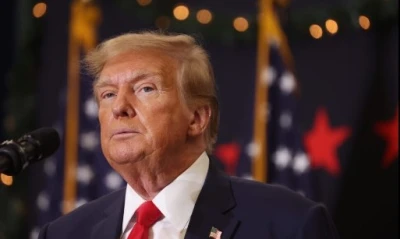In a pivotal decision, the Supreme Court has agreed to consider whether former President Donald Trump can claim immunity from prosecution in a federal case regarding his alleged interference in the 2020 election. This move could potentially delay the trial, pushing it closer to Election Day or beyond. Trump sees this as a victory in his bid to stall the criminal proceedings accusing him of attempting to overturn the election results. The court will tackle the unprecedented question of whether ex-presidents are shielded from prosecution for official acts performed while in office.
The timing of the trial remains uncertain. If the court rejects Trump’s immunity claim, the possibility of a trial before November hinges on how swiftly the justices reach a decision. Pre-trial preparations have been halted as Trump appeals for immunity. Judge Tanya Chutkan is likely to grant a minimum of three months for trial preparations once the case returns to her court. With the trial expected to span months, starting by August is crucial to avoid overlapping with the election period.
The legal issue at stake is unprecedented. The Supreme Court must determine whether former presidents enjoy absolute immunity from prosecution for their official actions. Lower courts have rejected Trump’s claims of immunity, asserting that the presidency does not guarantee immunity from criminal charges. Special counsel Jack Smith contends that the acts Trump is accused of fall outside the scope of presidential duties.
The Supreme Court’s options include upholding the appeals court ruling, affirming Trump’s immunity, or establishing boundaries for future prosecutions of former presidents. Chief Justice John Roberts may lead the opinion, depending on the court’s majority. The speed of the decision-making process hinges on the justices’ level of agreement.
Should the Supreme Court rule against Trump, the case would return to Judge Chutkan’s court for trial preparations. However, unresolved legal disputes and potential new arguments could further prolong the process. Trump’s desire to delay the trial is evident, with implications for his political ambitions. A trial during the election season could disrupt his campaign against President Biden.
The case’s significance extends beyond legal proceedings. It touches on national interests and raises questions about the accountability of former presidents for their actions in office. Trump’s allegations of political motivations behind the trial underscore the complexity of the legal and political landscape surrounding the case.

















